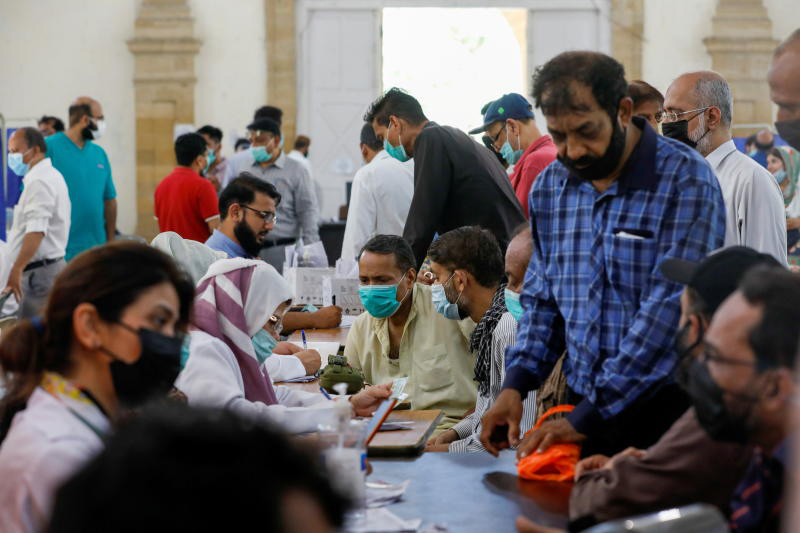
The Indian variant of Covid-19 has arrived in Thailand.
The variant was detected in a Thai woman and her young son arriving from Pakistan, prompting authorities to consider widening the ban on international arrivals to other countries besides India.
Apisamai Srirangson, the assistant spokeswoman for the Centre for Covid-19 Situation Administration, said on Monday the woman and her three sons, aged four, six and eight, arrived in Thailand from Pakistan via Dubai on April 24.
All were in a state-arranged quarantine facility after the arrival and the first tests found the mother and her youngest son were positive, while the other children were not infected.
A whole genome sequencing test conducted at Chulalongkorn Memorial Hospital on Sunday confirmed the virus detected on them was the variant from India, named B.1.617.1.
"These were the first detections of the Indian variant in the country," Dr Apisamai said.
The B.1.617.1 variant was recorded for the first time in India in October before spreading to other countries. Pakistan, Nepal and Bangladesh were among the nations on the subcontinent where this virus was found. In Southeast Asia, Singapore, Malaysia and Indonesia have detected the same variant.
Dr Apisamai said authorities were worried by the arrival of this version of the virus and the new danger it poses. "There is concern about this variant and about the possibility that it could mutate in Thailand," she added.
Thailand has barred foreign arrivals from India since the beginning of this month due to worries about the Indian variant. The Thai embassy in India does not issue certificates of entry (COE) to any non-Thai nationals, effectively meaning they cannot travel to the kingdom.
The assistant spokeswoman said the Foreign Ministry and Department of Disease Control were on Monday holding discussions about halting the issuance of the entry permit in other countries to try to keep the Indian variant of Covid-19 out of Thailand.
She did not name the countries but said the variant had been recorded in Pakistan, Bangladesh and Nepal.
"There is a possibility of delaying COEs in other countries," she added.
